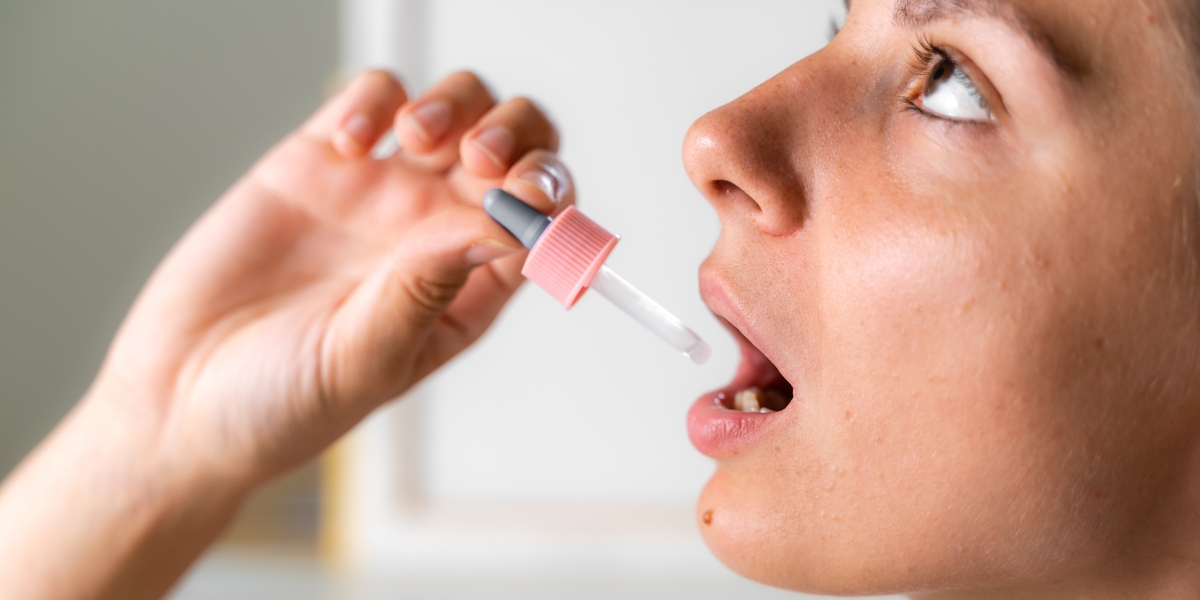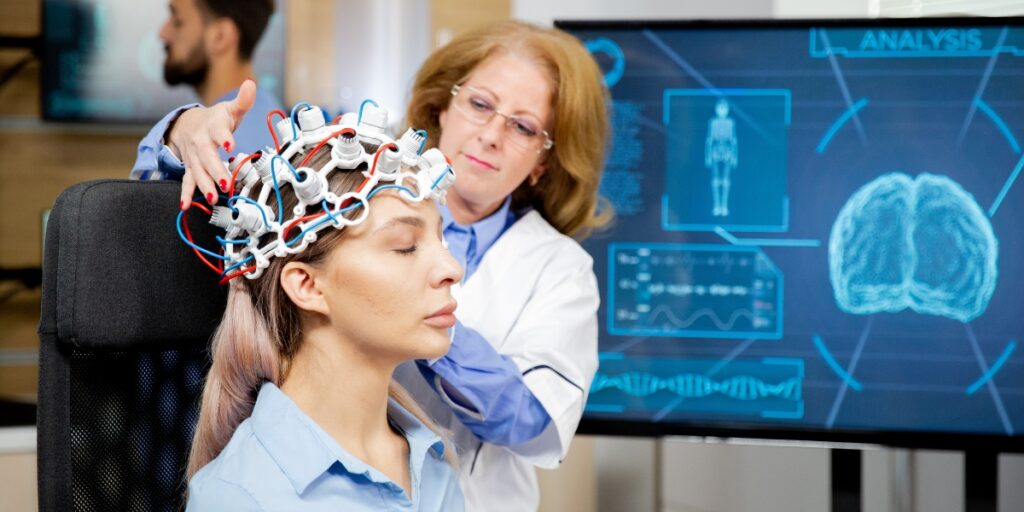Microdosing MDMA


Medical Writer:
Reviewer:

Johnny Kim
Executive Psychotherapist
Medical Writer:
Reviewer:

Johnny Kim
Executive Psychotherapist
MDMA, or molly, is widely known as a feel-good drug abused by ravers and club kids recreationally; but what if it were possible to replicate that feeling in small, controlled doses? That’s the idea behind microdosing MDMA.
People who take MDMA experience intense feelings of happiness and contentment when they take recreational doses, causing researchers and regular people to wonder if it is possible to harness those effects without an intense and long-lasting high. While controlled studies and clinical trials can be slow-moving and take years to produce results, some users have decided to experiment independently.
Table of Contents
ToggleSome users who have experimented with microdosing MDMA report improved mental health and mood stability; however, few scientifically-backed studies support these claims. MDMA-assisted therapy could prove beneficial one day, but currently, experts warn against experimenting with microdosing MDMA.
What Is Microdosing?
Microdosing is taking tiny doses of a drug to experience the perceived positive effects without a total high or adverse side effects. Generally, users take a fraction of what a recreational amount would be. The most common drugs people use for microdosing are psychedelic drugs like LSD, magic mushrooms, and MDMA, also called molly.
Many people report attempting to self-medicate mental health disorders, including post-traumatic stress disorder (PTSD), through microdosing. A large amount of research exists detailing the effects of high doses of psychedelics, but clinical trials and long-term studies around microdosing are limited. However, medical professionals know that repeated drug exposure increases the likelihood of becoming physically and emotionally dependent on that substance regardless of the actual quantity.
Microdosing MDMA or Molly
The idea behind microdosing MDMA, or molly, is to experience the mood-enhancing effects in small amounts, essentially using it as a do-it-yourself mood stabilizer without the unpleasant side effects like dehydration, sweating, or withdrawal.
Many claims about microdosing MDMA reducing depression and other mental health symptoms are anecdotal and have not been backup up by research, though scientists are trying to change that. As of 2017, the United States Food and Drug Administration (FDA) approved several clinical trials and controlled studies to study the effects of MDMA-assisted therapy. However, many tests are still ongoing, and the long-term effects are unknown.
High doses of MDMA cause a rush of serotonin, dopamine, and norepinephrine and keep them active throughout the central nervous system, specifically the prefrontal cortex, for long periods. The prefrontal cortex is critical in modulating the signals related to anxiety and mood regulation. In one controlled study using rodents, researchers observed structural changes in the brain and brain functions after one dose of psychedelics.
While microdosing MDMA is a relatively new concept, there have been controlled studies of MDMA-assisted psychotherapy using standard doses of MDMA between 40 mg to 125 mg to alleviate mental health symptoms. Participants reported reduced depression, social anxiety, and post-traumatic stress disorder (PTSD) symptoms. One pilot study around the treatment of PTSD monitored the brain waves and fear responses before and after taking MDMA, with a noticeable reduction in adrenaline and cortisol after taking small doses of MDMA.
Outside of research studies, MDMA remains a schedule I controlled substance, illegal for people to buy, sell, and use. Law enforcement will not care if you are microdosing for your mental health; they will arrest you anyway.
Doctors warn people experimenting with microdosing MDMA that it can cause tolerance, dependence, and addiction, even in small amounts. Furthermore, molly from unknown or unreliable sources can be impure and have dangerous side effects.

Side Effects of Microdosing MDMA
The side effects of microdosing MDMA will vary for every person based on their physical makeup and any co-occurring disorders they are trying to self-medicate using MDMA. Furthermore, the MDMA ordinary people can get is vastly different from the medical-grade, controlled substance used in research studies. Even in microdoses, impure MDMA’s effects can be unpredictable and life-threatening.
Common side effects of microdosing MDMA include:
- Increased alertness
- Energy
- Increased focus
- Increased heart rate
- Changes in sleep patterns
- Increased body temperature
- Sense of emotional stability
- Heightened sensitivity to physical stimuli
- Changes in blood pressure
- Nausea
- Headache
- Tolerance
- Dependence
- Withdrawal
Many people experience the subjective effects of MDMA, meaning people who expect a positive outcome are more likely to report a good experience. Because MDMA interacts with chemicals in the brain related to depression, anxiety, and PTSD responses, there is a risk of mental health problems returning or increasing in people who stop microdosing MDMA.
Health Risks
Any drug use has health risks, including microdosing MDMA. Repeated exposure to MDMA causes tolerance, which requires increasing doses to feel the same effects, quickly leading to addiction. MDMA is not purely a psychedelic drug; it also has amphetamine properties that have unforeseen and harmful effects on users.
Common health risks associated with MDMA include:
- Increased body temperature
- Hyperthermia, or overheating
- Dehydration
- Heart damage
- Worsening mental health
- High blood pressure
- Kidney failure
- Seizures
- Loss of consciousness
Mixing MDMA with other drugs and alcohol can worsen the health risks and cause negative interactions that may be life-threatening. As previously mentioned, MDMA dealers frequently cut it with other drugs, which can be unpredictable and dangerous. If you plan on using MDMA, you should always test it if possible and avoid using it alone.

Get Drug and Alcohol Abuse Help Today
If you have been microdosing MDMA or experimenting with drugs and alcohol to cope with stress and mental health issues, recovery is possible.
At White Oak Recovery Center, we specialize in evidence-based, comprehensive treatment that addresses and treats addiction’s root causes. We offer onsite medical detox to keep you safe through withdrawal with 24-hour medical care. During your stay in our private residential treatment facility, you will develop the confidence and life skills to navigate long-term recovery with joy and fulfillment free from substance abuse.
Reach out today to plant the seeds that will lead to a life rooted in recovery.

Am I covered for addiction treatment?
Your insurance may cover treatment. Call now for an entirely free and confidential assessment. Recovery starts with a phone call.

- Cameron, Lindsay, et al. “Psychedelic Microdosing: Prevalence and Subjective Effects.” Journal of Psychoactive Drugs, vol. 52, Apr. 2021.
- Grinspoon, Peter. “The Popularity of Microdosing Psychedelics: What Does the Science Say?” Harvard Health Publishing, Sep. 2022.
- Hashkes, Sarah. “A Precise Definition of Microdosing Psychedelics is Needed to Promote Equitable Regulation.” Harvard Bill of Health, Apr. 2022.
- Polito, Vince, and Richard J Stevenson. “A Systematic Study of Microdosing Psychedelics.” PloS one 14, Feb. 2019.
- Thal, Sascha B, and Miriam J J Lommen. “Current Perspective on MDMA-Assisted Psychotherapy for Posttraumatic Stress Disorder.” Journal of Contemporary Psychotherapy vol. 48. Jan 2019.
- Hutten, Nadia R P W et al. “Self-Rated Effectiveness of Microdosing With Psychedelics for Mental and Physical Health Problems Among Microdosers.” Frontiers in Psychiatry vol. 10, Sep. 2019.
- Patel, Rachel, and Daniel Titheradge. “MDMA for the Treatment of Mood Disorder: All Talk No Substance?.” Therapeutic Advances in Psychopharmacology vol. 5, Jun. 2015.
- Hutten, Nadia R P W et al. “Motives and Side-Effects of Microdosing With Psychedelics Among Users.” The International Journal of Neuropsychopharmacology vol. 22, Jul. 2019.
- Nutt, David. “Psychedelic Drugs-A new Era in Psychiatry?.” Dialogues in Clinical Neuroscience vol. 21, Jul. 2019.
- Studerus, Erich, et al. “Prediction of MDMA Response in Healthy Humans: a Pooled Analysis of Placebo-Controlled Studies.” Journal of Psychopharmacology (Oxford, England) vol. 35, May 2021.
- “Drug Fact Sheet: Ecstacy/MDMA.” United States Department of Justice, May 2020.
Medical Disclaimer:







